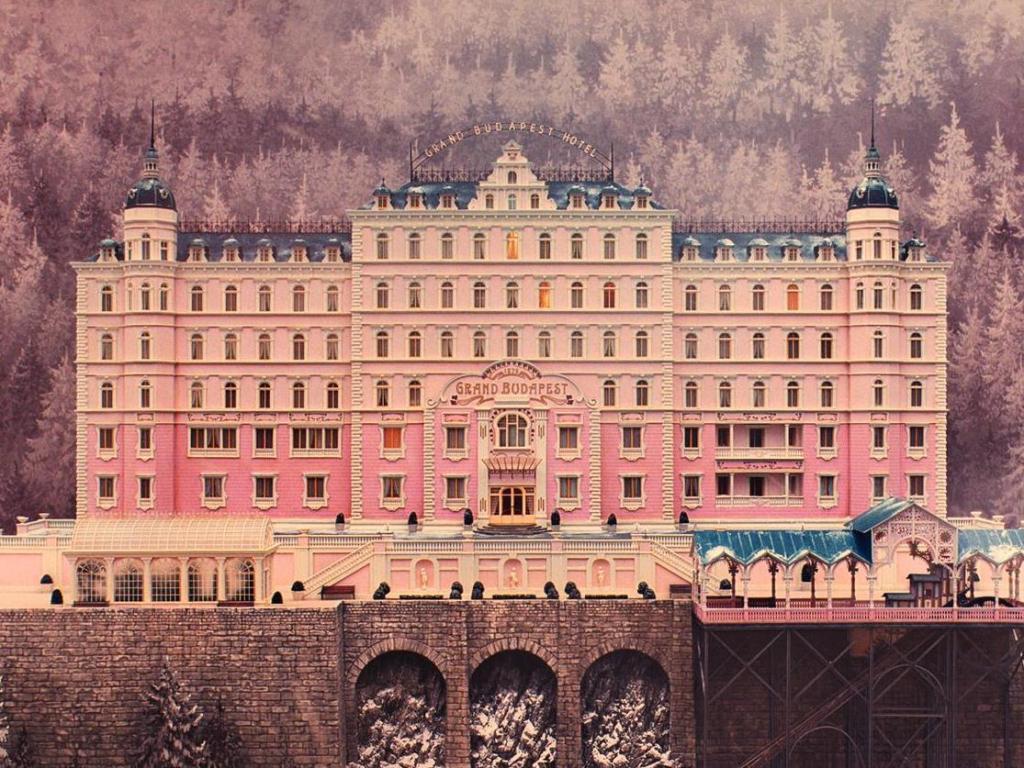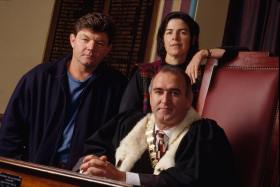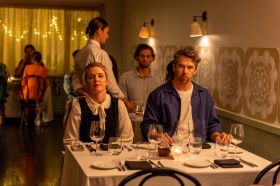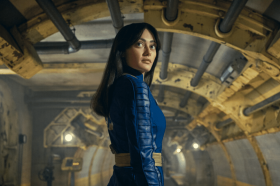As the intricate auteur du jour with an astute eye for the eccentric and eclectic, Wes Anderson’s screen style and sweet sensibilities border on inimitable. His films are immersed in distinctive worlds and boast detailed visuals, but the deception of simplicity lurks in their midst. For every matching uniform that adorns his characters, handmade decor that fills his frames, and penchant for symmetry and saturation that stamps its presence on his aesthetics, a tale of discontent and disconnection lingers – whether navigating close friendships in Bottle Rocket, finding identity in a family in The Royal Tenenbaums, or surrendering to the flush of first love in Moonrise Kingdom.
Adding to an impressive array of cinematic outings that includes Rushmore, The Life Aquatic with Steve Zissou, The Darjeeling Limited and Fantastic Mr Fox, Anderson’s eighth and latest feature remains true to his hallowed hallmarks, all the while crafting yet another individual but comparable offering. In The Grand Budapest Hotel, everything is farcically heightened, even beyond the writer/director’s established standards. From the exquisitely ornate imagery to the comedic yet controlled mannerisms, everything is also laced with mystery and wonder. The melancholically melodic Alexandre Desplat’s score (The Monuments Men) and darkly joyous matryoshka doll narrative complete the package.
The film’s title tells of a Zubrowkan establishment of high repute, once the jewel in the accommodation crown of the fictional country. By a fountain, a girl holds a memoir of the same name, penned by an unreferenced author. In his office, the writer (Tom Wilkinson, The Lone Ranger) tells of its content. Back in 1968, his younger self (Jude Law, Dom Hemingway) frequented the lodgings, learning its history from its owner, Mr. Moustafa (F. Murray Abraham, Inside Llewyn Davis). In his own formative years, the proprietor – once a lobby boy better known as Zero (Tony Revolori, The Perfect Game) – learnt his trade from esteemed concierge M. Gustave (Ralph Fiennes, Great Expectations). Their time of combined service was coloured by war, conspiracy and murder charges.
Further complications exist in a script co-written by artist and illustrator Hugo Guinness, and in a film also populated by an impressive assemblage of quirky characters enlivened by recognisable performers. As he is want to do, Anderson calls on his frequent colleagues on and off the screen to furnish a feature all about collaboration. In making the movie, the returning cast and crew add the comfort and texture known in the auteur’s works, be it as familiar faces (Owen Wilson, Bill Murray, Adrien Brody, Bob Balaban, Jason Schwartzman and Jeff Goldblum are all alumni of Anderson’s oeuvre), or in offering consolatory meticulousness in everything seen. In the world of the story, layer upon layer of players circle around each other, but it is only when the protagonists work together that they can find a way through their woes.
As much as the gorgeous and gregarious The Grand Budapest Hotel endears in its adherence to Anderson’s type, hanging on the narration of its differing viewpoints, and relaying an account of an account of an account fleshed out by double crosses, prison break outs and elaborate heists, it is in its focus on Fiennes that the film bursts the director’s boundaries. Confident in his pronounced gestures, just as he is with his prolific use of profanity, the actor devastates in his gloriousness, sharing the pride in performance of his fastidious character. Whether curtly instructing Zero in the hotel’s smooth running, confidently charming the elderly clientele beyond professional bounds, or bustling with the wit that keeps the film bubbling, his Gustav is a character to cherish in his comic calculation.
On closing, the feature is credited as inspired by the works of novelist Stefan Zweig, author of The Royal Game, Letter from an Unknown Woman and Beware of Pity, but it is never in doubt of being anything other than a quintessential Anderson effort. Even tinged with inescapable sadness and traversing blacker comedy than his other output, the adored director conjures up a film worthy of the adulation routinely thrown his way. The Grand Budapest Hotel is the culmination of his most lavish, immersive and sophisticated vision – and also borders on his best work.
Rating: 4 ½ out of 5 stars
The Grand Budapest Hotel
Director: Wes Anderson
US / Germany, 2014, 100 mins
Gold Coast Film Festival
http://www.gcfilmfestival.com/
3 – 13 April
Release date: April 10
Distributor: Fox
Rated: M
Actors:
Director:
Format:
Country:
Release:





